2015 Yamaha VXS Review
RiDE and electric trim take VXS to a new level
To be honest, there’s little difference between the Yamaha VXS and VXR. Both models are based on a redesigned-for-2015 VX platform, and both utilize a big engine to maximize horsepower-to-weight ratio.
The biggest advantage to the VXS is that it still offers a thrilling, powerful ride while comfortably making room for a third passenger, and not forgetting that a lot of owners use their craft not only for power turns, but also for towing and touring. That’s accomplished mainly with the switch of a saddle. On the VXR, a single, significant bolster locks a performance rider in place. On the VXS, the bolsters are far smaller and segmented to accommodate three people topside. The setup makes it more comfortable for a rear-facing spotter when towing.
Beyond the saddle, however, the craft are surprisingly similar…and enjoy newfound features for 2015.
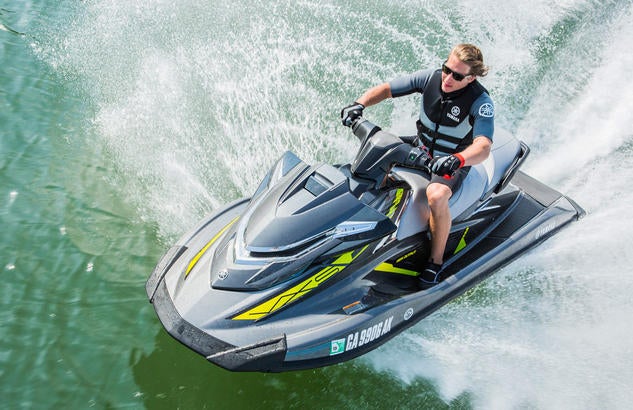 Yamaha outfitted the VXS with a host of upgrades for 2015.
Yamaha outfitted the VXS with a host of upgrades for 2015.New Look, New Ride
One very obvious change is a newly made-over hull and deck. Overall, the new VX hull is about 5” longer and 2” wider, with a new shape for both the keel and strakes, and softened chines forward. The intake for the jet pump has also been changed, along with a new ride plate. The goals? According to Yamaha reps, who are pretty hyped on the new design, to improve the craft’s stability and comfort, while increasing performance.
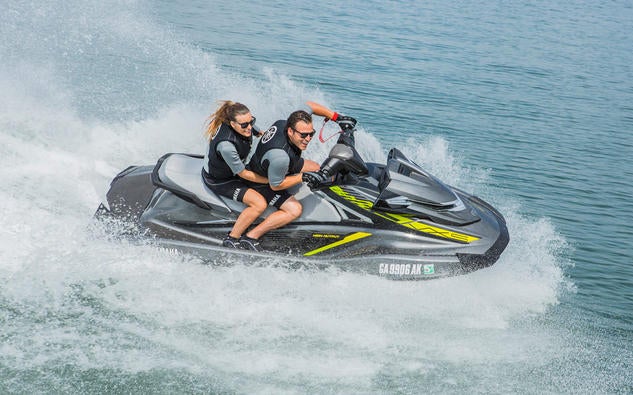 Electric trim is a much-appreciated addition, giving the operators the ability to push the limits of the craft.
Electric trim is a much-appreciated addition, giving the operators the ability to push the limits of the craft.On the water, I noticed a newfound aggressiveness to the ride. At top speeds, it quickly responds without the slight unpredictability that could give me pause on the previous model. That gave me more confidence when pushing the boat to its limits at top speed, especially when coupled with judicious use of the new-for-2015 electric trim. Lower it before entering a turn and an experienced rider can pretty much lean over and pin the throttle knowing he or she will aggressively shoot out the other side. Still, anyone with less experience should use caution. This is a lightweight boat with a lot of power, capable of race-style turns. Push it before you’re ready and you just may get unceremoniously ejected.
COMPARISON: Read our review of the 2015 Sea-Doo GTR 215
Feel that power and you may be surprised the engine lacks a supercharger. Yamaha’s 1.8-liter engine is the largest displacement design currently in the industry. On a craft that weighs in at only 765 pounds (thanks in part to the addition of Yamaha’s NanoXcel fabrication technology to the manufacturing process), it delivers near-flagship results, pushing the VXS to a top speed near the 65mph mark in ideal conditions. Expect a 0-30 mph time as brief as 1.8 seconds.
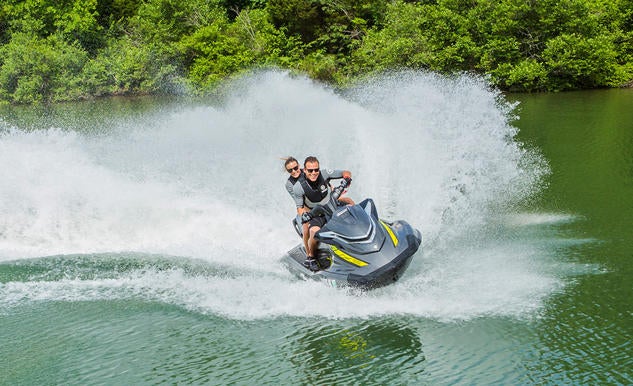 Despite the lack of a supercharger, the VXS still offers a top speed near 65 mph and wicked acceleration.
Despite the lack of a supercharger, the VXS still offers a top speed near 65 mph and wicked acceleration.Up top, the VXS’s style also takes on a more aggressive edge. Lines are harder, and arguably more masculine. Mirrors are integrated into the FX-influenced cowl, storage is increased by nearly 10 gallons, the seat is now a two-piece design with small removable dry storage below the aft portion, and the swim/reboarding platform has taken advantage of the stretched dimensions to include more room for boarding.
Improved Control
An equally compelling addition beyond the hull and deck is RiDE, Yamaha’s new approach to control out on the water. RiDE adds a second throttle to the left handlebar grip, a throttle dedicated to power not in forward, but in reverse. Linked to the reverse bucket, activate it at speed and RiDE will deflect water forward and to the sides to rapidly decelerate the craft while maintaining a level attitude. Activate it at slow speed and you can put the craft into reverse with eyes focused on the water. RiDE makes the VXS start in neutral, with pump thrust deflected to prevent motion. A rider can then choose to pull the normal throttle to go forward, the RiDE lever to go into reverse, or toggle between the two for precision control. There’s no obvious detent between forward-neutral-reverse motions. Rather, the two throttles work to seamlessly flow between motions with almost no interruption.
COMPARISON: Read our review of the 2014 Kawasaki Jet Ski Ultra LX
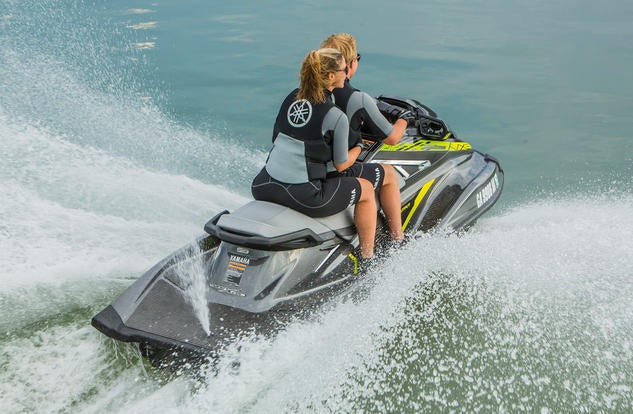 Yamaha’s RiDE system gives the operator more control over the VXS than ever before.
Yamaha’s RiDE system gives the operator more control over the VXS than ever before.The addition of RiDE also brings with it the welcome addition of the aforementioned electronic trim. Both systems are vast improvements over the former manual reverse and no trim. Trim, especially for a three-seat-focused model, allows you to adjust the running attitude to match the conditions or passenger load, as well as get more performance out of the craft by lowering the bow for better acceleration and raising it for improved top speed.
Not So Simple Anymore
When the VXS first made its debut, it was a simple model. The lightweight VX hull was matched with the powerful normally aspirated engine and the result was a craft that offered a lot of power for less money than the flagships, and one that kept things simple when it came to extras.
COMPARISON: Read our review of the 2015 Yamaha VXR
Yes, there are a few standard Yamaha-issue extras. You get the familiar remote transmitter to lock the craft against theft, and a full-featured instrument display. Matting is Hydro-Turf brand, so traction is top-notch, the saddle is textured to provide a little grip during aggressive riding, and you get a spring-loaded boarding step at the stern.
Obviously this is a craft that remains focused on the more performance-oriented, let’s-keep-things-simple rider. The addition of RiDE and electronic trim, however, have vastly increased the boat’s appeal, not to mention its versatility.
The best news? Such extensive additions haven’t significantly increased the boat’s price. The 2015 version of the VXS runs a mere $100 more than its predecessor.
The good news just keeps on coming…
| 2015 Yamaha VXS Specs | |
| Length | 131.9 inches |
| Beam | 48 inches |
| Curb Weight | 767 lbs |
| Engine | Four-cylinder DOHC EFI |
| Displacement | 1,812 cc |
| Bore and Stroke | 86mm x 78mm |
| Compression Ratio | 11.0:1 |
| Rated Horsepower | 180 (Estimated) |
| Fuel Capacity | 18.5 gal. |
| Combined Stowage Capacity | 24.6 gal. |
| Colors | Carbon Metallic |
| Price | $11,499 |
Get PersonalWatercraft.com in your Inbox!
Like PersonalWatercraft.com on Facebook
Comments
Most Popular
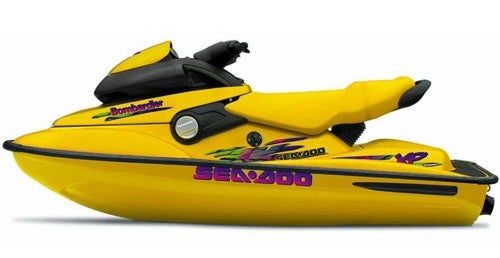
Remembering the Sea-Doo XP
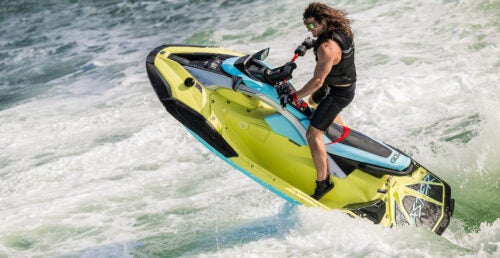
2025 Yamaha JetBlaster PRO 2-Up Review
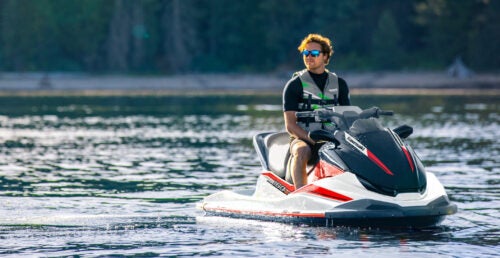
2024 Kawasaki Jet Ski STX 160X Review
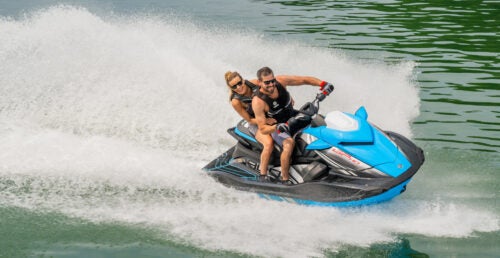
2024 Yamaha GP HO Review
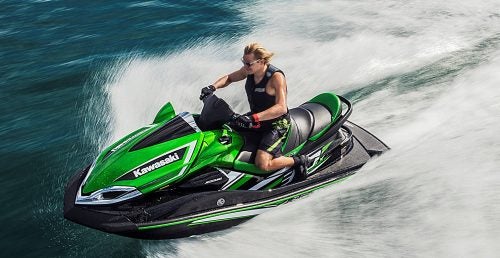
2017 Kawasaki Jet Ski Ultra 310LX Review
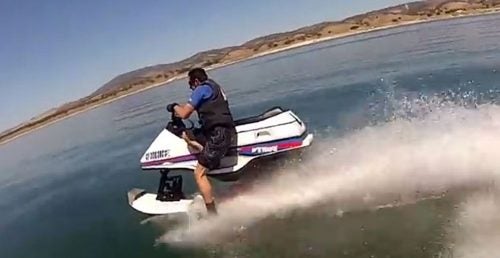
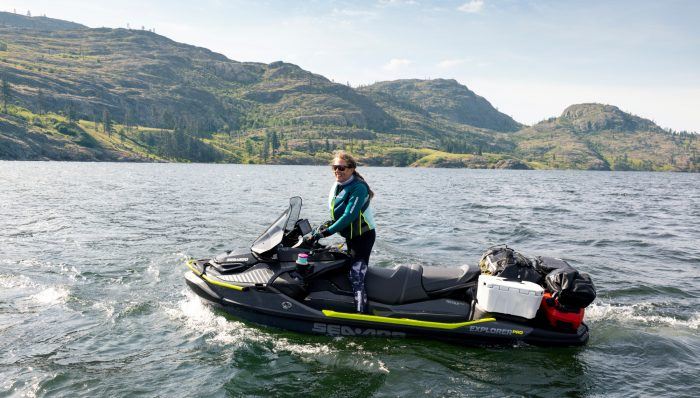
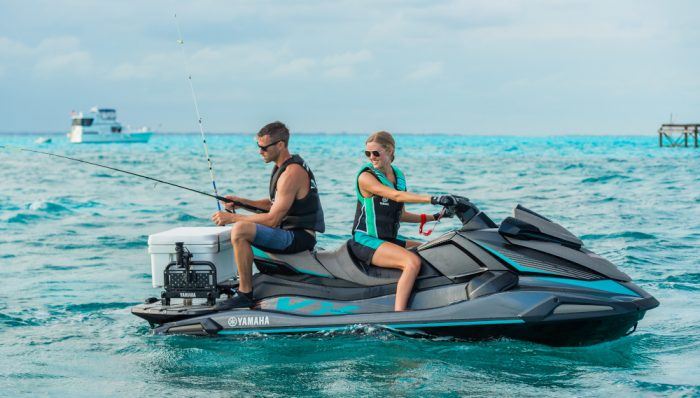
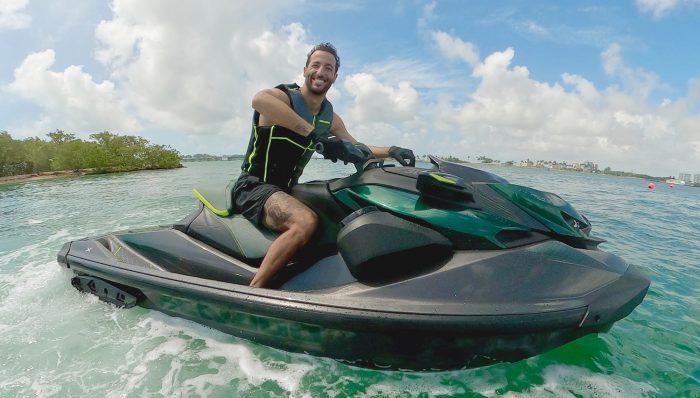
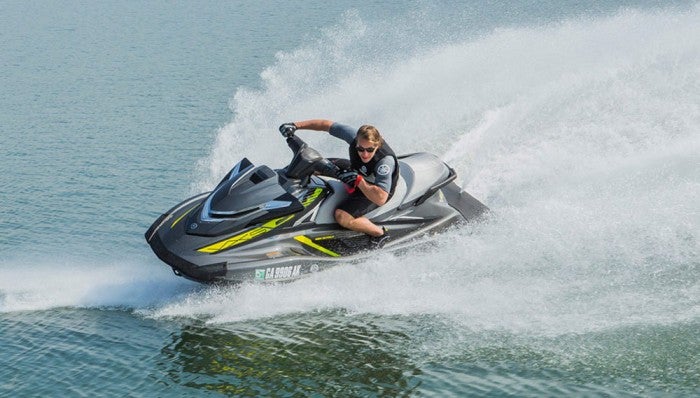
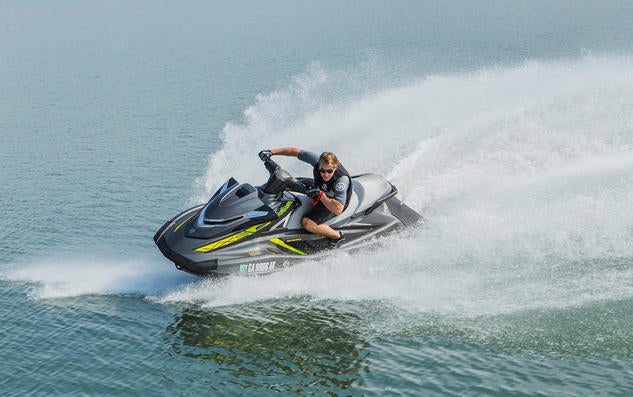


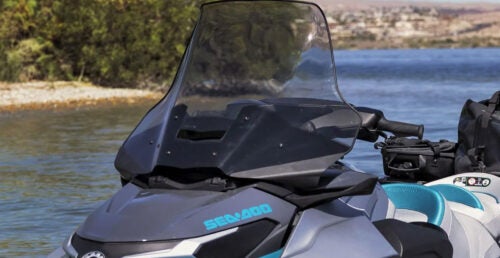



 Your Privacy Choices
Your Privacy Choices